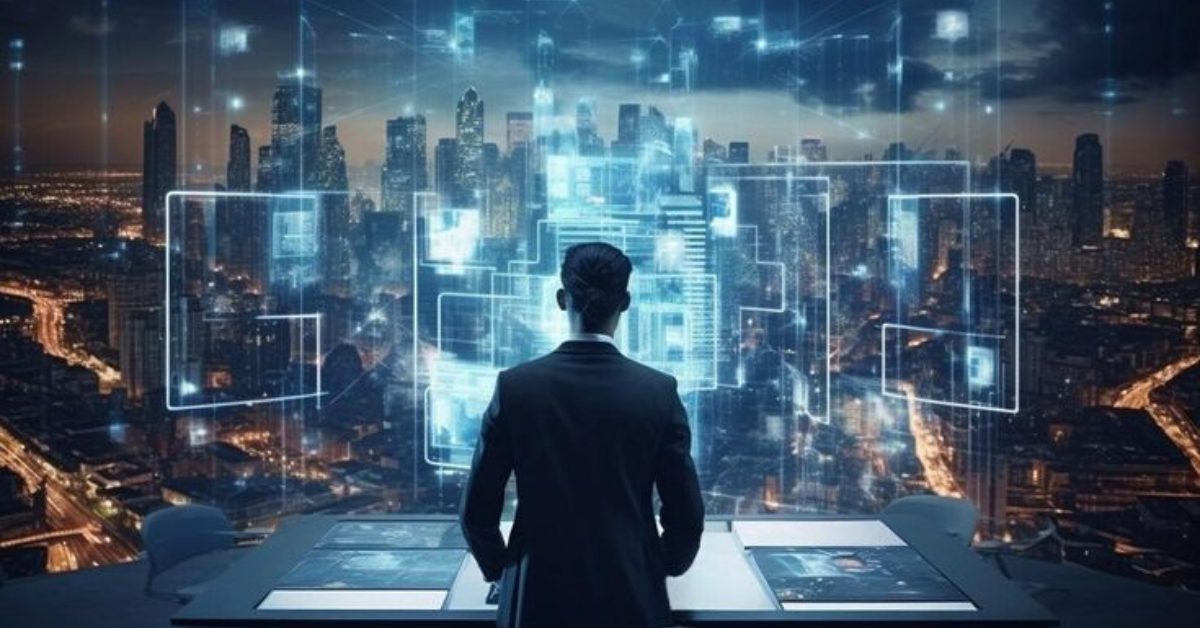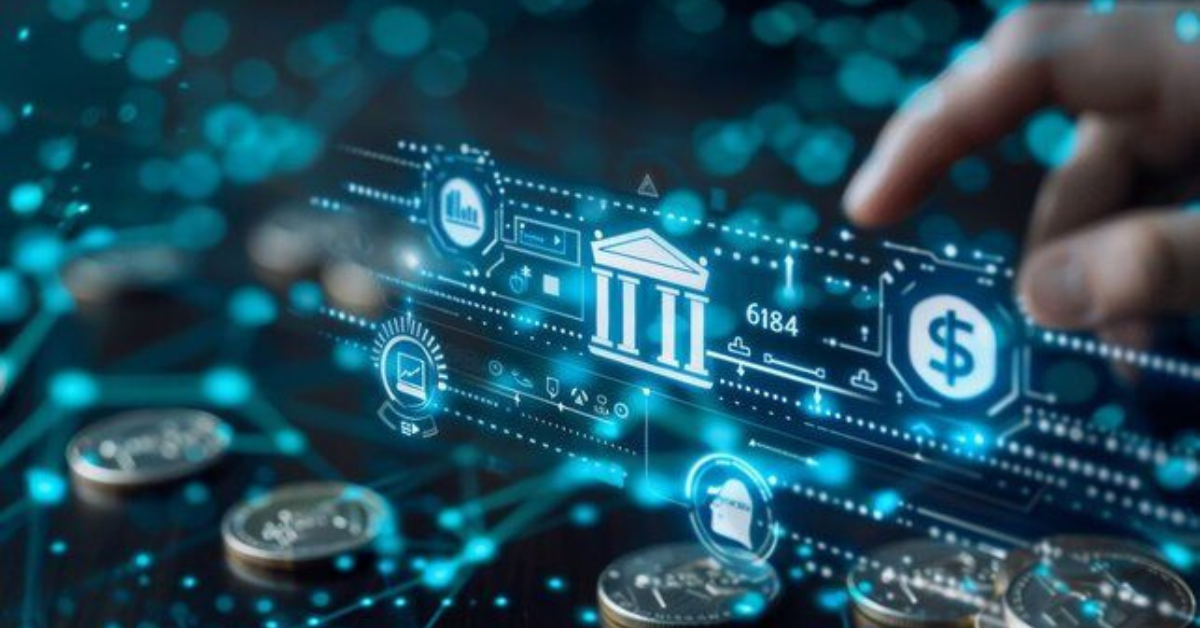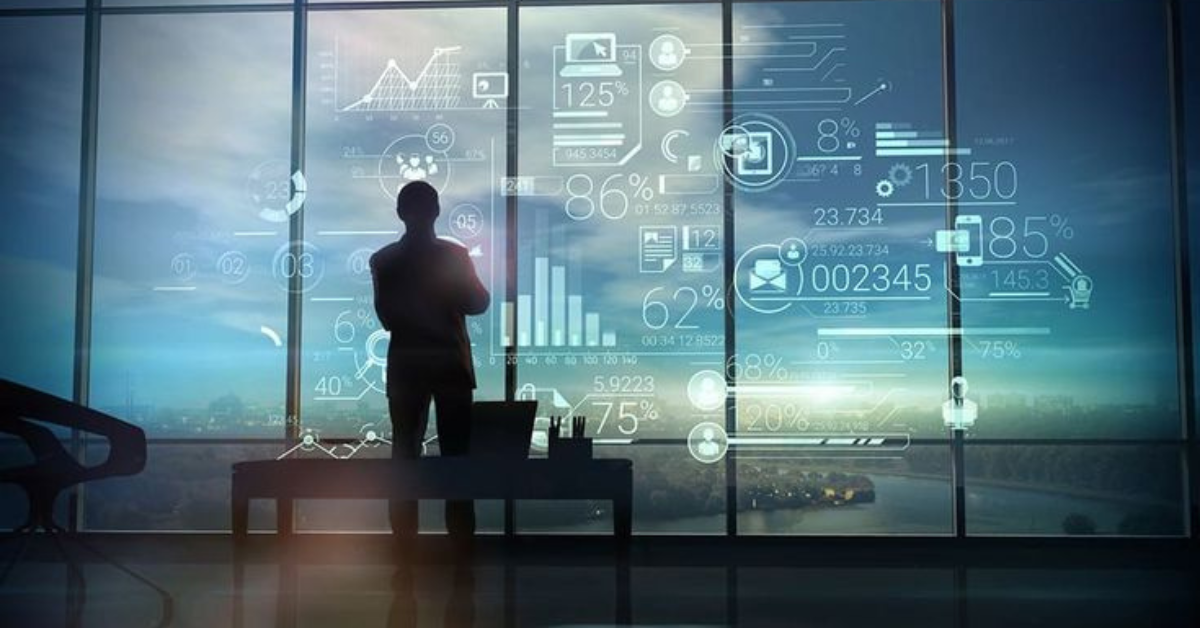In 2025, the business world is transforming faster than ever before. Technology is no longer a support system — it’s the core engine driving every decision, strategy, and customer interaction. From artificial intelligence (AI) and automation to blockchain and sustainable innovation, digital tools are rewriting the rules of success.
This is not just evolution — it’s a digital revolution reshaping the global economy, redefining work, and opening limitless opportunities for those ready to adapt.
🌍 The Shift to a Fully Digital Economy
Over the past decade, the global economy has moved from traditional models to hyper-digital systems. Cloud computing, 5G connectivity, and advanced analytics have made it possible for even small startups to compete with corporate giants.
By 2025, over 70% of businesses worldwide are expected to operate primarily through digital platforms — from e-commerce and remote operations to AI-powered marketing and financial automation.
Digitalization is no longer a choice; it’s survival. Businesses that fail to adapt risk becoming irrelevant, while those that embrace transformation are leading the next industrial wave — often called Industry 5.0.
🤖 The Rise of Artificial Intelligence in Business
AI has become the backbone of decision-making in modern enterprises. From predicting customer behavior to optimizing logistics and automating financial analysis, AI helps businesses act faster and smarter.
In 2025, AI systems are no longer experimental tools — they’re essential business partners.
- Customer Experience (CX): AI chatbots and recommendation engines personalize user interactions in real time.
- Operations: Predictive analytics anticipate supply chain disruptions and manage inventory more efficiently.
- Finance: Automated trading bots and AI-powered forecasting drive investment decisions.
One of the most notable changes is AI democratization — affordable AI tools now empower small businesses to compete on a global scale. The AI revolution is breaking down barriers and putting innovation in the hands of everyone.
💡 Cloud, Automation, and the New Digital Infrastructure
Cloud computing has become the foundation of modern business operations. It enables companies to scale quickly, reduce costs, and manage data securely across global teams.
In 2025, multi-cloud strategies are standard. Businesses rely on hybrid systems that balance flexibility, security, and cost-efficiency.
Automation, on the other hand, is replacing repetitive work, freeing employees to focus on creativity and strategy. Tasks that once required hours — data entry, report generation, or onboarding — are now completed in seconds.
Together, cloud + automation have turned businesses into digital ecosystems where collaboration happens seamlessly across borders.
📱 The Power of Digital Customer Engagement
Today’s consumers are more connected, informed, and demanding than ever before. They expect instant responses, personalized recommendations, and seamless digital experiences.
Businesses are responding by leveraging data-driven marketing and AI-powered personalization.
Platforms like Instagram, TikTok, and LinkedIn have evolved into full-scale marketplaces, while direct-to-consumer (DTC) brands are redefining how products reach audiences.
By 2025:
- Video marketing drives 82% of all online traffic.
- Voice commerce and AI assistants are mainstream for online shopping.
- AR/VR technology allows customers to “try before they buy.”
The line between physical and digital experiences is fading, giving rise to phygital businesses — those that merge digital tools with real-world value.
💰 Digital Finance and the Future of Money
The financial world has undergone a radical transformation. Cryptocurrencies, blockchain, and central bank digital currencies (CBDCs) are reshaping how money moves globally.
By 2025, blockchain technology has become integral to business transparency, supply chain management, and secure digital transactions. Smart contracts automate payments, eliminate intermediaries, and ensure accountability in every deal.
Fintech startups continue to disrupt traditional banking by offering instant payments, AI-based credit scoring, and decentralized finance (DeFi) tools.
The rise of digital wallets and contactless transactions means cash is rapidly becoming obsolete — paving the way for a fully digital financial ecosystem.
🌿 Sustainability Meets Digital Transformation
A major focus of the digital business revolution is sustainability. Consumers now expect companies to act responsibly, minimize waste, and embrace green technologies.
Businesses are using digital tools to track carbon emissions, optimize energy use, and promote eco-friendly production.
For example:
- IoT sensors monitor energy consumption in real time.
- AI systems reduce waste by predicting supply needs.
- Blockchain ensures ethical sourcing and transparency.
The future of business success depends not just on profits but on purpose. Sustainable innovation is the new competitive advantage.
🧑💼 The Evolving Workplace of 2025
The way we work has transformed dramatically. The global pandemic accelerated remote work adoption, and by 2025, hybrid workplaces have become the norm.
Employees now work across continents, supported by digital collaboration tools like Slack, Zoom, and Microsoft Teams. AI-driven platforms manage workflows, analyze productivity, and personalize learning experiences.
The focus has shifted from where people work to how effectively they collaborate.
Companies investing in employee experience platforms and digital wellness programs are seeing higher engagement, creativity, and retention.
The next era of work emphasizes human-machine collaboration, where AI assists employees rather than replaces them — enabling a smarter, happier, and more efficient workforce.
🧩 The Role of Data in Decision-Making
Data is the new oil — and by 2025, it’s flowing faster than ever. Businesses are investing heavily in data analytics, machine learning, and business intelligence tools to make real-time decisions.
From predicting market shifts to identifying emerging consumer trends, data helps organizations stay one step ahead.
However, the explosion of data brings new challenges — privacy, security, and ethical use.
As governments tighten regulations around data protection (like GDPR 2.0), businesses must balance innovation with integrity.
The winners of the digital era will be those who not only collect data but also use it responsibly and transparently.
🧠 Digital Skills and Workforce Transformation
As businesses evolve, so must the workforce. The demand for digital literacy has skyrocketed.
In 2025, the most valuable employees aren’t necessarily those with traditional degrees — but those who can adapt, learn, and work with technology.
Top in-demand skills include:
- AI and data analytics
- Cybersecurity
- Cloud architecture
- UX/UI design
- Digital marketing
Governments and companies are investing heavily in reskilling programs to prepare workers for the jobs of tomorrow. The result? A more agile, tech-savvy generation of professionals ready to lead the future.
🌐 Small Businesses Go Global Through Digital Tools
One of the most exciting aspects of the digital revolution is how it empowers small and medium-sized enterprises (SMEs).
With affordable online tools, e-commerce platforms, and AI-powered analytics, small businesses can now compete on the same level as global brands.
Platforms like Shopify, Fiverr, and HubSpot have turned local entrepreneurs into global players. A small store in Finland or Pakistan can reach customers in New York, London, or Tokyo with just a few clicks.
This democratization of business is one of the most powerful outcomes of digital transformation.
🔮 What’s Next: The Future Beyond 2025
As we move deeper into the digital age, the pace of innovation continues to accelerate. The coming years will bring:
- Quantum computing unlocking new possibilities for data and AI.
- Decentralized organizations (DAOs) redefining how businesses are managed.
- Metaverse commerce changing how consumers shop and interact online.
- AI-driven creativity, where machines help design, write, and build.
The business of the future will be faster, smarter, and more interconnected than ever before. But success will depend on one thing — how well companies align technology with human values.
🏁 Conclusion:
The Digital Business Revolution of 2025 isn’t just about adopting new tools — it’s about reimagining how business works.
Technology, when used wisely, doesn’t replace humans — it amplifies their creativity, decision-making, and vision.
From AI-powered operations to sustainable innovation and borderless collaboration, the companies that thrive in this era will be those that stay agile, customer-focused, and ethical.
The future belongs to those who don’t just follow trends — but create them.
Welcome to the revolution. Welcome to Digital Business 2025.




